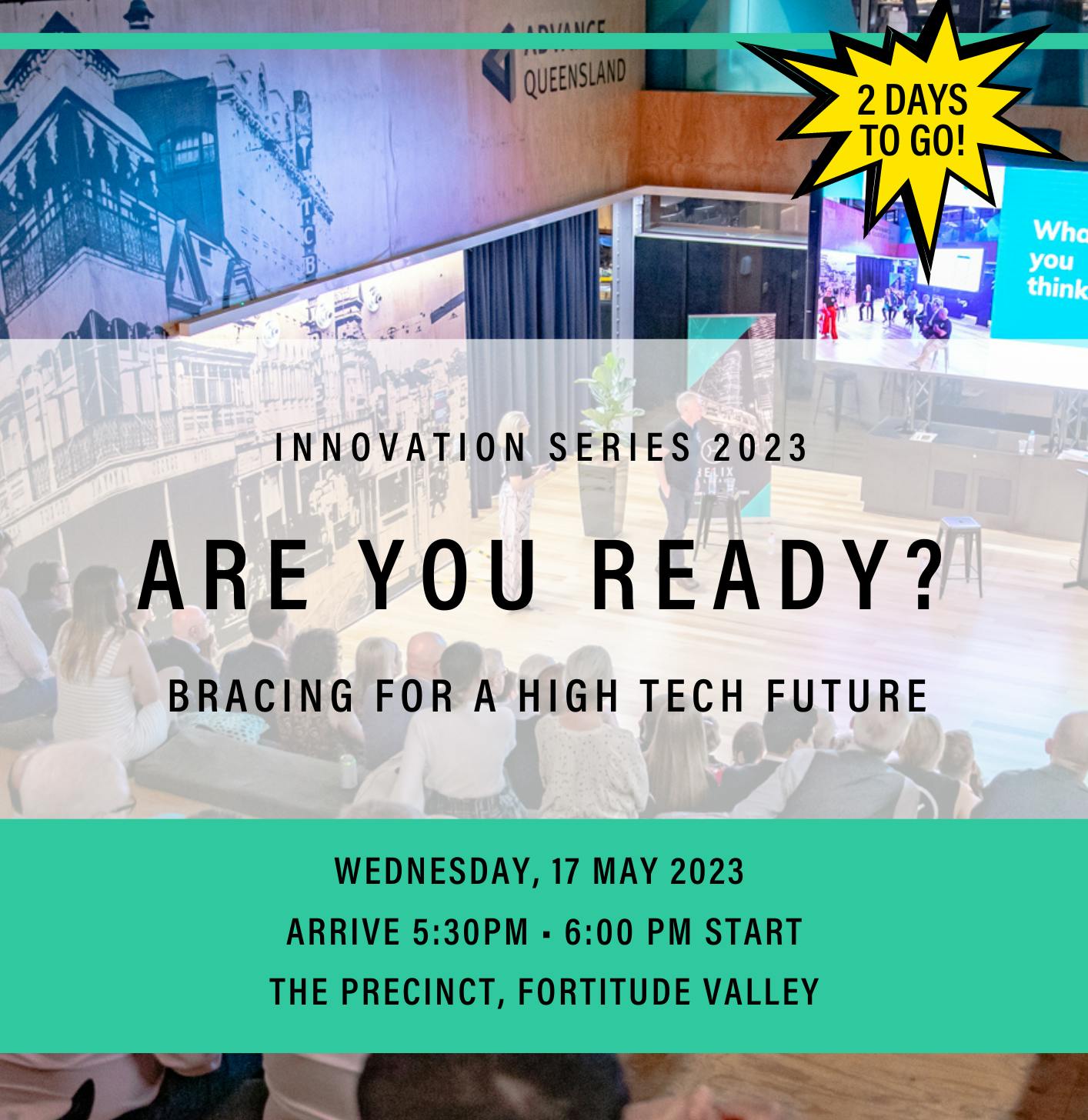People will need to brace themselves as Artificial intelligence (AI) transforms the construction industry. Unfortunately, there are many people working in the industry that are struggling to get their heads around this AI revolution.
AI is a very important aspect of the construction industry racing towards a high-tech future. There are various other high-tech aspects to consider. They include digital Building Information Modelling (BIM), drones, virtual and augmented reality, robotics, and the Internet of Things (IoT).
Bracing for a High Tech Future
We at Helix are very proud to organise an event this coming Wednesday, 17 May 2023 entitled Bracing for a High Tech Future and I invite anybody around Brisbane on this day to come and hear interesting pitches from a number of presenters who have developed innovative industry solutions.
Prior to COVID-19, we ran a number of these events promoting innovation in the industry. We are very proud to be back supporting people wanting to see substantial innovation transform the industry.
In the midst of the COVID-19 period, I published an article entitled Energy, creativity, initiative, and innovation will see some construction businesses prosper in this COVID-19 Crisis that referend to previous innovation-based articles I had written.
In this article, I stated:
“I have written many previous articles where I appeal to construction business to take on innovation and creativity as the best means to grow their businesses in an environment where industry disruption is/will be the new norm. I must admit that in writing these articles, never did I envisage for one moment the scale of disruption this crisis will cause the industry. However, the fourth industrial revolution has been underway for years now, in the process significantly disrupting all industries.
In an article published 28 September 2018 entitled Disruption - more than just a buzzword, I stated:
“I am of the view that in the next 5–10 years the construction industry as we currently know it will not exist as a result of innovation-driven change and disruption. Unfortunately, I am very concerned that current contractors have not adequately prepared themselves for the threats and opportunities that such developments will present.”’
AI fearmongering is very unhelpful
When it comes to understanding the impact AI will have on all aspects of our lives, and in particular the construction industry, I notice a lot of fear-mongering headlines. In the future, I predict that there will be a lot of misinformation.
I am not for one moment discounting the risks of AI, particularly around privacy and confidentiality. We must have sensible conversations concerning all AI risks.
However, I recently came across this online op-ed entitled Why fear cannot stifle businesses as we prepare for the evolution of AI which I believe paints a very balanced view.
Focus on the construction industry
AI will transform the construction industry by transforming the way construction projects are planned, designed, and performed.
Benefits of AI in Construction
AI can bring numerous benefits to the construction industry, including:
- Improved Safety: AI can help identify potential safety hazards and prevent accidents on construction sites. For example, AI-powered drones can monitor construction sites and identify potential safety hazards, such as loose scaffolding or unstable structures.
- Increased Productivity: AI can help streamline construction processes, reduce errors, and increase productivity. For example, AI-powered robots can perform repetitive tasks, such as bricklaying or painting, faster and more accurately than humans.
- Enhanced Sustainability: AI can help reduce waste and improve sustainability in construction projects. For example, AI can optimize building designs to reduce energy consumption and carbon emissions.
- Better Decision Making: AI can provide real-time data and insights to help construction managers make informed decisions. For example, AI can analyse data from sensors and cameras to identify potential delays or cost overruns.
Challenges of AI in Construction
Despite the potential benefits, there are also challenges to implementing AI in the construction industry, including:
- Cost: Implementing AI technology can be expensive, and many construction companies may not have the resources to invest in it.
- Lack of Skilled Workers: AI technology requires skilled workers to operate and maintain it. However, there is currently a shortage of workers with the necessary skills and knowledge.
- Data Quality: AI relies on high-quality data to function effectively. However, construction data is often fragmented and inconsistent, making it difficult for AI to analyse and interpret.
Current State of AI in Construction
- Autonomous Construction Equipment: Companies like Caterpillar and Komatsu are developing autonomous construction equipment that can operate without human intervention.
- Predictive Maintenance: AI can analyse data from sensors and predict when equipment will need maintenance, reducing downtime and increasing productivity.
- BIM: BIM is a digital representation of a building that can be used to optimize design and construction processes. AI can analyse BIM data to identify potential issues and optimize building performance.
- Quality Control: AI can analyse data from sensors and cameras to identify defects and ensure that construction meets quality standards.
Future Developments of AI in Construction
The potential for AI in the construction industry is vast, and there are several areas where AI can be further developed, including:
- Predictive Analytics: AI can analyse data from various sources, such as weather forecasts and traffic patterns, to predict potential delays and optimize construction schedules.
- Material Optimisation: AI can analyse data on material usage and waste to optimise material usage and reduce waste.
- Safety Monitoring: AI can monitor construction sites in real-time and identify potential safety hazards, such as workers not wearing safety gear or equipment malfunctioning.
Conclusion
In conclusion, AI has the potential to transform the Australian construction industry. It can do this by improving safety, increasing productivity, enhancing sustainability, and enabling better decision-making.
However, there are also challenges to implementing AI, such as cost, lack of skilled workers, and data quality.
Despite these challenges, the current state of AI in the construction industry is promising. There are successful examples of AI implementation in autonomous construction equipment, predictive maintenance, and BIM.
The future developments of AI in construction, such as predictive analytics, material optimization, and safety monitoring, are exciting. They have the potential to further revolutionise the industry.
AI will transform the construction industry, and we are in for a wild ride.
Not intended as legal advice. Read full disclaimer.



